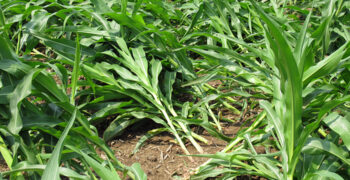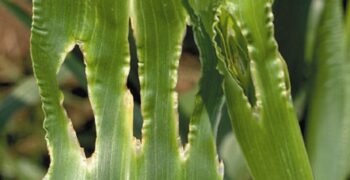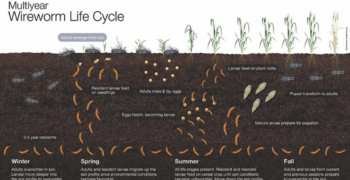Background:
Nematodes are microscopic roundworms that can live in various environments, including soil. In agriculture, nematodes can have both beneficial and detrimental effects on crops like corn. There are two different types of nematodes: Plant-parasitic nematodes and beneficial nematodes.
Plant-parasitic nematodes feed on the roots or above-ground parts of corn plants, causing damage that can lead to reduced yields. Common plant-parasitic nematodes affecting corn include:
- Root-knot nematodes. These nematodes cause swelling or galling of corn roots, which impairs water and nutrient uptake.
- Cyst nematodes. These nematodes form cysts on the roots of corn plants, reducing root function and nutrient uptake.
- Lesion nematodes. These nematodes feed on the roots of corn plants, causing lesions that can affect root health and nutrient uptake.
As their name implies, beneficial nematodes are beneficial to corn plants because they predate on pest insects or by enhance nutrient availability in the soil. Entomopathogenic nematodes are a good example. They parasitize and kill insect pests, such as corn rootworm larvae, that can damage corn crops.
Impact on Corn:
Infestations of plant-parasitic nematodes in corn can lead to symptoms such as stunted growth, yellowed leaves and reduced yields. Damage is often more severe in areas with sandy soils or under conditions that stress the corn plants.
Management:
Managing nematode populations in corn involves several strategies including the following:
- Crop rotation. Rotating corn with non-host crops can help reduce nematode populations by depriving them of their preferred host plants.
- Nematicide treatments. Chemical nematicides can be applied to soil or seed treatments to control nematodes, although their use is becoming more restricted due to environmental concerns.
- Resistant varieties. Planting corn varieties that are resistant or tolerant to specific nematode species can help mitigate damage.
- Monitoring. Regular soil testing and monitoring for nematode presence and population levels are essential for implementing effective management strategies.



